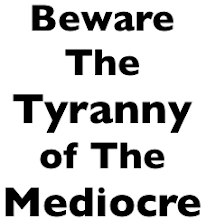
 Occasionally, even the mainstream media are forced to acknowledge reality.
Occasionally, even the mainstream media are forced to acknowledge reality.Toward the end of a story on Japan's recent election, which may have resulted in the demise of the party that's dominated the nation's politics for most of the post-war era, the New York Times noted that the incoming government "has promised to strengthen the social safety net and raise the low birthrate by giving families cash handouts of $270 per-month per-child." (Emphasis added)
 So, the Japanese see a relationship between declining fertility and the nation's long-term economic malaise? Could this have implications for other nations?
So, the Japanese see a relationship between declining fertility and the nation's long-term economic malaise? Could this have implications for other nations?With the world's second-largest economy, Japan has been stuck in the doldrums for most of this decade. In the 1990s, Japan's stock market fell 80 percent from an all-time high. Its real estate market lost 60 percent of its value.
A decade of massive stimulus spending hasn't stopped the slide. Japan's public debt-to-GDP (180 percent, compared to 98 percent in the U.S.) is the highest of any industrialized nation.
With a birthrate of 1.25 (2.17 is needed just to replace current population), Japan has one of the 10 lowest birthrates in the world.
As a result, it also has the fastest-aging population. Japanese over 60 went from 11.6 percent of the nation in 1989, to 21.2 percent today. It's estimated that Japan's workforce will shrink 20 percent by 2030. Throughout history, there has never been an instance of economic growth coupled with declining birthrates.
















































































































2 comments:
Japan is entirely dependent upon the importation of energy and much of its food.
The japanese islands can sustainably support a population of ~28 million. The "spiritual" culture you found evoked in the bugei arts, is in fact nothing other than a zero population growth culture which sustained that status for nearly 400 years until the time of the meiji "restoration".
I'm all for going to the perfectly balanced, extreme culture of competency. It was arguably the zenith of human civilization in the non-ancient era. A feudal culture in which 3 million men with 3 foot long stepping razors enforce cultural norms works perfectly for me.
Just 50 years ago, the global population was 3 billion and arguably doing a lot better than us now at 8 billion.
This "fear" of not making the replacement rate is irrational. If anything, a population decrease would be good for humanity and this planet.
Even in a horrific cataclysm where 1/2 our population died off...we'd simply be plunged back to the pop in about the 70s.
And that would be a "bad" thing?
Only reason they (Baby Boomers) want more babies is to support their pyramid retirement/health care scheme for themselves. Being the most self-centered generation ever, this is no surprise. But also extremely selfish and short-sighted, true to their form. Why should we further screw this planet just to serve as a life support system for these brats???
Post a Comment